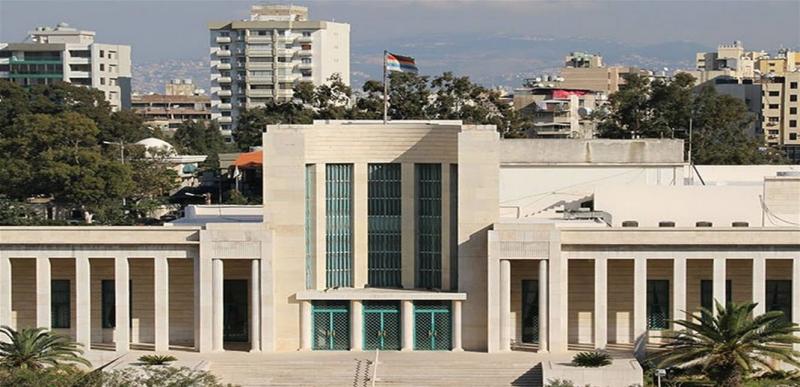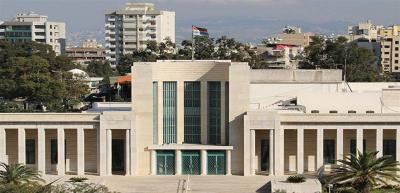The meeting at Dar Al-Fatwa could be a foundational element for the emergence of a new political landscape for the Sunni community. Historically, this community has been a core component of the state and its backbone. It possesses a social and class vitality across Lebanon that enables it to produce a political vision and a project not limited to an individual, but instead based on a national project that integrates both internal and external dimensions. A brief review of Lebanon's history indicates that the Sunni exit from the governance equation has historically led to wars, conflicts, crises, and collapses. Conversely, their collaboration with others and active participation in vision-building can create conditions for mutual understanding and Lebanese prosperity.
The national significance of the meeting extends beyond its occurrence and importance; there is momentum toward the Maronite Patriarchate, other Christian forces, as well as the Druze community's leadership and the Shiite community. Within this context, efforts are focused on organizing a meeting of spiritual leaders at the Druze community’s council, which will include most religious authorities, including Sayyid Ali Fadlallah.
The Sunnis need more than just a meeting at Dar Al-Fatwa under the banner of differences or merely registering positions in a final statement. They must formulate a national political project based on establishing a collective national vision, similar to the role Sunnis played in the 1940s and 1950s, and during the war as they prepared for the subsequent phases and the drafting of the Taif Agreement. This path is beginning anew today, under the clear patronage of Saudi Arabia's effort to reinstate it in line with Saudi Arabia's "Vision 2030," which includes developing awareness movements and creating a new socio-political trajectory that complements economic pathways.
In early September, during a meeting between Saudi and French officials in Paris, the French attempted to discuss the Sunni arena, but the Saudi response was clear: the Kingdom places significant emphasis on the Sunni environment. This focus stems from its insistence on Lebanese national integration. This was reflected in the meeting at Dar Al-Fatwa and subsequently in the gathering at the Saudi ambassador's residence, with efforts continuing in two dimensions, Sunni and national:
1. First, through an initiative to create bridges for organized meetings among youth and party organizations.
2. Second, through political meetings of a group of figures aimed at establishing political groups with new visions.
3. Third, focusing on the broader political agenda by striving to unify allies on a common stance. This is evident in the preparation for meetings with the Lebanese Forces, the Kataeb Party, the Progressive Socialist Party, independent MPs, and some MPs from the revolutionary movement to coordinate positions regarding the presidential entitlement and related matters.
4. Fourth, commitment to the Taif Agreement and reaching a unifying position among religious, spiritual, and political authorities similar to the statement from Dar Al-Fatwa.
Reviving Political Sunni Identity
It is true that the meeting at Dar Al-Fatwa included deputies from diverse political affiliations: some are allied with Hezbollah, others oppose it, while the majority are adversaries of it and its project, yet they struggle to establish a comprehensive political project capable of uniting them. Therefore, this meeting must be a milestone in the path of reviving and invigorating Sunni politics. The meeting can be repeated, even with fewer deputies who gather around a coherent internal and external political vision. It should serve as an opening for consecutive meetings with other religious and spiritual authorities within Lebanon's fundamental principles to establish a general framework and political themes for the upcoming phase capable of pulling the country out of its crisis. This is not necessarily an intrusion of religion into politics but rather a practical approach in the current circumstances.
The meeting comes amid the absence of a Sunni political body and the lack of civil symbols or authorities. Thus, it must evolve to resemble the Aramoun Retreat held by the martyr Mufti Hassan Khaled, which resulted in a dynamic Sunni political movement that laid the groundwork for the Taif Agreement later on.
Hezbollah and Fragmentation of Sunni Representation
The absence of Sunni political leadership necessitates reliance on Dar Al-Fatwa's role, but the reality is fundamentally different from the 1980s for several reasons:
1. First, since the parliamentary elections in 2005, Hezbollah has been working to penetrate the Sunni arena at the parliamentary level, securing a significant parliamentary bloc within the Sunni community in various regions.
2. Second, the role played by the Islamic Projects Association ("Ahbash") and other groups affiliated with Hezbollah.
3. Third, the emergence of a civil atmosphere in the Sunni arena that does not wish to recognize religious authorities. This is influenced by the events of October 17 and what preceded and followed it, while the campaign launched by some clerics against Ibrahim Mneimneh has yet to impact voters, as those who voted for him support his proposals.
4. Fourth, the Sunnis are presently experiencing the worst economic and living conditions: poverty and forced migration rates are rising in their areas, enabling Hezbollah to expand its influence in these regions, especially in Sidon, Tripoli, Akkar, and Bekaa, based on the distribution of various forms of assistance.
5. Fifth, recent security incidents in Sunni areas indicate the absence of authorities, as seen in Sidon and Tripoli through migration operations or potential occurrences in the future.
6. Sixth, the lack of a cohesive political stance and the absence of a renewed movement within the Sunni community. This has allowed Hezbollah and others to exploit the volatile political circumstances in the region by demonizing the Sunnis and portraying them as terrorism, amid the complete absence of a counter-movement, while the Sunnis laid down at times during their marginalization.




